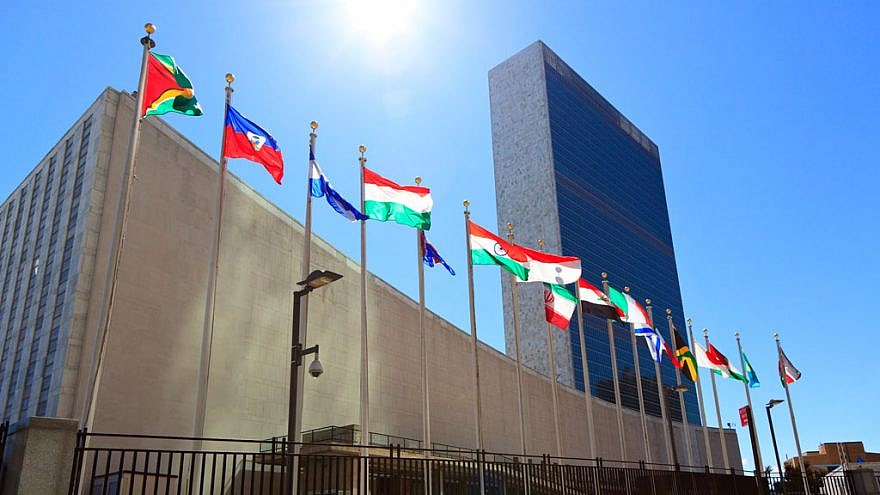In his annual speech to the UN General Assembly, Palestinian Authority President Mahmoud Abbas warned that Israel’s annexation of the Jordan Valley would be met by the Palestinians with the cancellation of all agreements with it, this without explaining what the practical significance of such a step would be on, for example, the PA’s very existence.
The Palestinian leader further cautioned that the continued treading of water in efforts to forge peace on the basis of a two-state solution based upon the 1967 borders would exacerbate the sense of desperation among the Palestinian public and increase its willingness to support a one-state solution. Abbas rejected the US peace plan as well as the possibility of Washington serving as a mediator in talks between Israel and the Palestinians, attacked recent moves by Israel and the US, and promised his people would continue its fight against the occupation with all means at its disposal, including popular struggle.
Yet Abbas also reiterated his call to hold an international peace conference and his unwavering commitment to fighting terrorism. In an attempt to challenge Hamas and deal with criticism over the lack of democracy in the Palestinian territories, Abbas promised to work toward holding elections in the West Bank, the Gaza Strip, and east Jerusalem. The initiative’s chances are slim, to say the least.
Abbas’ remarks, which were less acerbic in tone than those he made in previous addresses to the General Assembly, reflected a concern over the ineffectiveness of his policies and the sidelining of the Palestinian issue from the international, regional, and Israeli agenda.
In practice, despite the cuts in the transferred funds and the Palestinian decision to avoid accepting a further installment of payments Israel is willing to transfer, the PA continues to pay these terrorist salaries as usual. According to the PA budget implementation report for 2019, the Palestinian Authority transferred 276 million shekels (around $79 million) in payments – i.e., salaries – and another 75 million shekels (around $22 million) in “social” payments to families, family expenses, medical insurance coverage, and legal expenses, among other things. In total, the PA Prisoner Affairs Ministry spent some 364 million shekels ($105 million) on these terrorist payments.
These numbers reveal that the PA’s payments to terrorists in 2019 were similar in scope to those made the previous year. The significance of this is that despite increasing pressure, the Palestinians are sticking to their guns, as it were, and as a result, the chances of the PA becoming a partner for peace under Abbas’ leadership continue to be slim to none.









